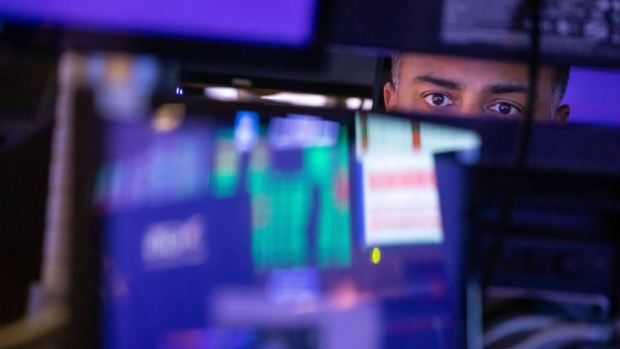Sep 3, 2021
Potential Tax on Share Buybacks Gets Shrug: Wall Street Reacts
, Bloomberg News

(Bloomberg) -- Wall Street to Senate Democrats: meh, whatever.
Stocks barely budged after Bloomberg News reported that Democratic lawmakers are considering slapping an excise tax on stock repurchases or treating them as taxable dividends as a way to offset some spending proposals.
On the face of it, that could see corporations slow the flood of cash into buybacks -- some $370 billion already this year -- that some argue props up share prices. But a possible proposal by one party, even the one with control of both legislative bodies, is a very long way from becoming law.
And if it did become enacted, the chances that the tax would have a meaningful impact on stocks remains low, money managers argued. With government spending and Federal Reserve largesse juicing the economy, dip-buyers have yet to let the S&P 500 Index decline by much more than 4% this year before swooping in.
The S&P 500 was little changed near an all-time high in trading 20% below the 30-day average, with many investors starting early on the three-day weekend.
Still, few stock-market topics are as contentious as the impact of companies plowing profits into buying their own stock. The effect of buybacks on everything from share prices and per-share earnings to the fabric of society are spiritedly debated, with easy answers elusive.
Here’s how some on Wall Street reacted to the news:
Zhiwei Ren, portfolio manager at Penn Mutual Asset Management:
“It could be a little bit of a headwind for the market but I don’t think it’s going to be a big sea-change. Maybe instead of going up 15% in a year, we go up 13%,” he said. “Yes, buybacks have been one of the biggest sources of purchase in the market but now I think it’s not just buybacks -- it’s just truly, there are no alternatives. For every investor out there, if you have money, the choice of investment is very, very limited. If you buy cash, you’re losing purchase power. If you buy bonds, you’re losing purchase power also. So the only game in town is equities.”
Michael Reynolds, vice president of investment strategy at Glenmede:
“This new proposal on taxing corporate buybacks, stock buybacks, is a little bit out of left field,” he said by phone. “If something like this were to pass, we do think it could change the calculus for some companies on how they return cash to their shareholders. In the current taxation regime, where dividends are taxed but corporate buybacks are not taxed, on an after-tax, total-return basis, theoretically investors should prefer more corporate buybacks that would maximize their after-tax expected returns. So this is a big reason that a lot of companies have been using stock buybacks in lieu of dividends. And that could change how a lot of these companies think about those two avenues of returning cash to shareholders.”
Chris Zaccarelli, chief investment officer at Independent Advisor Alliance:
“In the medium to long term, I would expect people to focus more on the earnings power of a company and less about how that earnings gets back into your pocket,” he said. “I would argue an extremely profitable company that doesn’t buy back any stock is likely to move higher than a marginally profitable company that pays dividends or does buybacks. I don’t know that necessarily whether you buy back your stock or not has that much of an impact in terms of how much an investor would value that company.”
Mike Loukas, chief executive officer at TrueMark Investments:
“It’s been pretty well digested that we’re going to see a jump in taxes on corporations and the wealthy,” he said. “The question is, in what form and how aggressive? If the Democrats somehow get this $3.5 trillion monstrosity across the finish line, they’ll be turning over the couch cushions looking for ways to pay for it! That could put corporations and wealthy investors on edge.”
©2021 Bloomberg L.P.